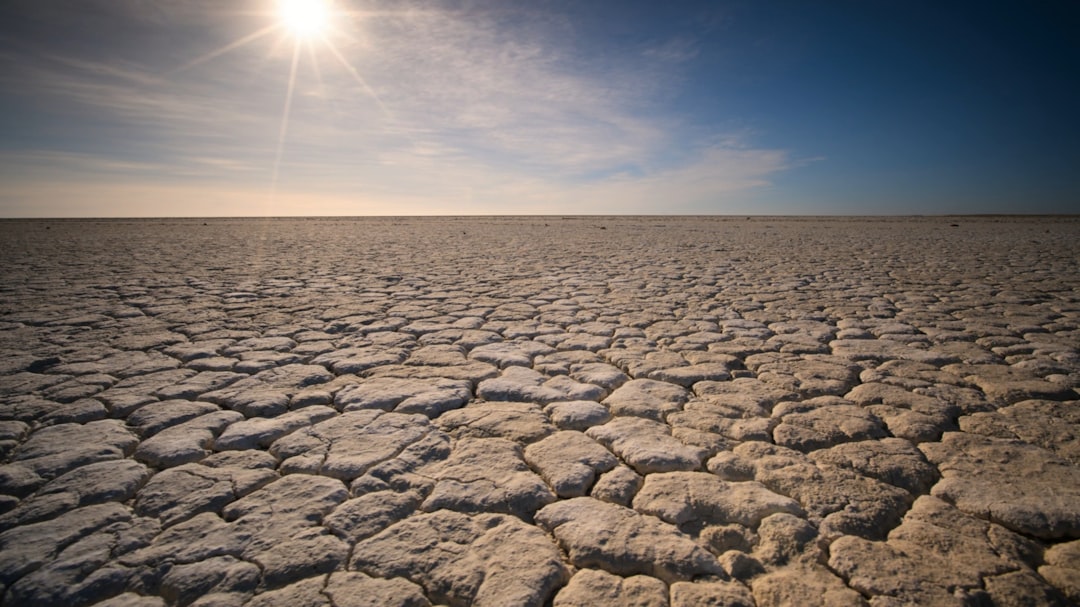What is it about?
This research paper evaluates the environmental impacts and economic benefits of six different wastewater management schemes for molasses-based ethanol production in Thailand. The study primarily focuses on comparing open lagoon and upflow anaerobic sludge blanket (UASB) technologies. Six scenarios, labeled A to F, are analyzed: schemes A and B use open lagoon technology, while C to F employ UASB technology with various configurations of energy sourcing and biogas use. The study aims to determine the most environmentally and economically advantageous scheme by analyzing environmental cost, payback period, and cost savings through the Analytic Hierarchy Process (AHP). It also considers factors like water reuse, methane emissions, and the environmental impact of each production step, including sugar cultivation, ethanol production, and wastewater treatment. [Some of the content on this page has been created by AI]
Featured Image

Photo by Stuart Frisby on Unsplash
Why is it important?
Understanding the environmental and economic implications of wastewater management in ethanol production is critical, particularly in countries like Thailand with significant ethanol production from molasses. The research is important for several reasons: it provides comprehensive insights into the environmental and economic trade-offs of different wastewater treatment technologies in ethanol production; it guides decision-making for sustainable and cost-effective practices in the industry; and it contributes to reducing environmental impacts, particularly in reducing greenhouse gas emissions and improving water resource management. The study's outcomes have the potential to influence policy decisions and industrial practices in Thailand and other countries with similar ethanol production profiles. KEY TAKEAWAY: The most advantageous scheme for molasses-based ethanol production in Thailand involves UASB technology with energy sourced from a sugar mill, offering the lowest environmental impact and significant economic benefits. This research relates to the following Sustainable Development Goals: • SDG 9 - Industry, Innovation, and Infrastructure • SDG 7 - Affordable and Clean Energy • SDG 6 - Clean Water and Sanitation • SDG 12 - Responsible Consumption and Production • SDG 13 - Climate Action
Read the Original
This page is a summary of: Environmental impacts and economic benefits of different wastewater management schemes for molasses-based ethanol production: A case study of Thailand, Journal of Cleaner Production, February 2020, Elsevier,
DOI: 10.1016/j.jclepro.2019.119141.
You can read the full text:
Resources
SDG Showcase: Goal 9 – Industry, Innovation and Infrastructure
More plain language summaries of research relevant to Sustainable Development Goal 9: Industry, Innovation and Infrastructure – brought to you by the SDG Knowledge Cooperative
SDG Showcase: Goal 7 – Affordable and Clean Energy
More plain language summaries of research relevant to Sustainable Development Goal 7: Affordable and Clean Energy – brought to you by the SDG Knowledge Cooperative
SDG Showcase: Goal 6 – Clean Water and Sanitation
More plain language summaries of research relevant to Sustainable Development Goal 6: Clean Water and Sanitation – brought to you by the SDG Knowledge Cooperative
SDG Showcase: Goal 12 – Responsible Consumption and Production
More plain language summaries of research relevant to Sustainable Development Goal 12: Responsible Consumption and Production – brought to you by the SDG Knowledge Cooperative
SDG Showcase: Goal 13 – Climate Action
More plain language summaries of research relevant to Sustainable Development Goal 13: Climate Action – brought to you by the SDG Knowledge Cooperative
SDG Knowledge Cooperative
More plain language summaries of research relevant to all the Sustainable Development Goals.
Climate Change Showcase
More plain language summaries of research relevant to Climate Change
Contributors
The following have contributed to this page










